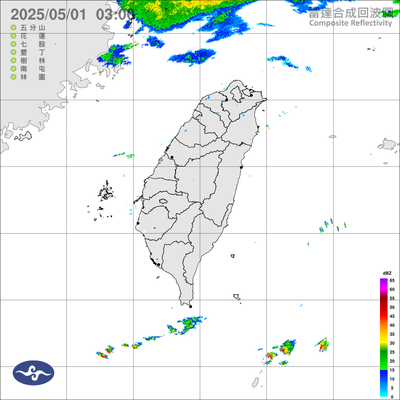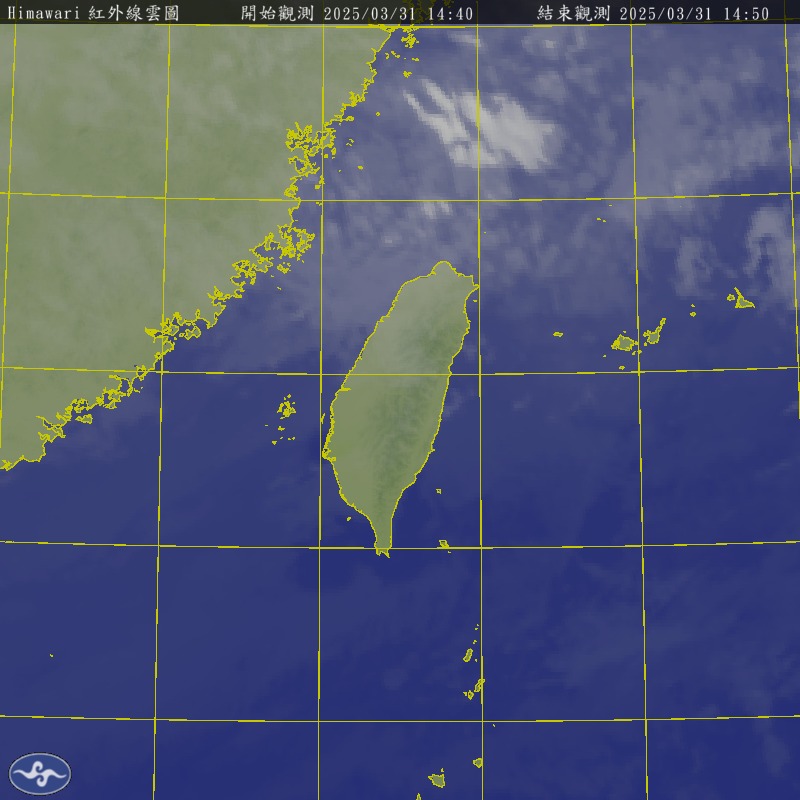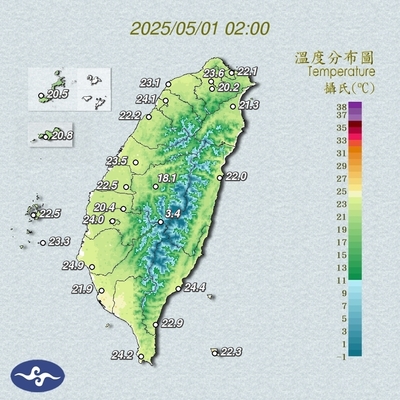| 經卷 | 章 | 節 | 和合本聖經 | 台語聖經 | 台羅聖經 | 字典 | 瀏覽數 |
|---|---|---|---|---|---|---|---|
| 01創世記 | 3 | 15 |
我又要叫你和女人彼此為仇;你的後裔和女人的後裔也彼此為仇。女人的後裔要傷你的頭;你要傷他的腳跟。 And I will put enmity between you and the woman, and between your offspring 3:15 Or ((seed)) and hers; he will crush 3:15 Or ((strike)) your head, and you will strike his heel.
|
我又要叫你和婦人結冤仇,你的後裔和婦人的後裔,也結冤仇,婦人的後裔,要傷你的頭,你要傷他的腳後跟。
|
我(Guá) 又要(koh-beh) 叫(kiò) 你(Lí) 和(Kap) 婦 人(lâng) 結冤仇(kiat-oan-siû), 你(Lí) 的(ê) 後裔(hō͘-è) 和(Kap) 婦 人(lâng) 的(ê) 後裔(hō͘-è), 也(iā) 結冤仇(kiat-oan-siû), 婦 人(lâng) 的(ê) 後裔(hō͘-è), 要(iau) 傷(siong) 你(Lí) 的(ê) 頭, 你(Lí) 要(iau) 傷(siong) 他(I) 的(ê) 腳後跟(kha-āu-tiⁿ)。
|
124 | |
| 01創世記 | 3 | 16 |
又對女人說:我必多多加增你懷胎的苦楚;你生產兒女必多受苦楚。你必戀慕你丈夫;你丈夫必管轄你。 To the woman he said, I will greatly increase your pains in childbearing; with pain you will give birth to children. Your desire will be for your husband, and he will rule over you.
|
又對女人說,我必多多,加添你懷孕的苦楚,你生兒女必多受苦楚,你必戀慕你丈夫,你丈夫必管轄你。
|
又(Koh) 對(Tuì) 女人(lú-jîn) 說(kóng), 我(Guá) 必(pit) 多多(tsē-tsē), 加添(ke-thiⁿ) 你(Lí) 懷孕(hoâi-īn) 的(ê) 苦楚(khó͘-chhó͘), 你(Lí) 生(siⁿ) 兒女(kiáⁿ-jî) 必(pit) 多(chōe) 受(Siū) 苦楚(khó͘-chhó͘), 你(Lí) 必(pit) 戀慕(loân-bō͘) 你(Lí) 丈夫(tiōng-hu), 你(Lí) 丈夫(tiōng-hu) 必(pit) 管轄(koán-hat) 你(Lí)。
|
132 | |
| 01創世記 | 3 | 17 |
又對亞當說:你既聽從妻子的話,喫了我所吩咐你不可喫的那樹上的果子,地必為你的緣故受咒詛;你必終身勞纔能從地裏得喫的。 To Adam he said, Because you listened to your wife and ate from the tree about which I commanded you, <You must not eat of it,> Cursed is the ground because of you; through painful toil you will eat of it all the days of your life.
|
又對亞當說:你既然聽從妻子的話,吃了我所吩咐你,不可吃的那樹上的果子,地必為你的緣故受咒詛,你必一生勞苦,才會從土地得吃。
|
又(Koh) 對(Tuì) 亞當(A-tong) 說(kóng): 你(Lí) 既然(kì-jiân) 聽從(thiaⁿ-chiông) 妻子(khan-tshiú牽手) 的(ê) 話, 吃(Tsia̍h食) 了(liáu) 我(Guá) 所(sóo) 吩咐(hoan-hù) 你(Lí), 不可(m̄-thang) 吃(Tsia̍h食) 的(ê) 那(hia) 樹(Tshiū) 上(siōng) 的(ê) 果子(ké-chí), 地(tē) 必(pit) 為(ûi) 你(Lí) 的(ê) 緣故(iân-kò͘) 受(Siū) 咒詛(chiù-chó͘), 你(Lí) 必(pit) 一生(It-sing) 勞 苦, 才會(chiah-ē) 從(tùi) 土地(thó͘-tē) 得 吃(Tsia̍h食)。
|
149 | |
| 01創世記 | 3 | 18 |
地必給你長出荊棘和蒺藜來;你也要喫田間的菜蔬。 It will produce thorns and thistles for you, and you will eat the plants of the field.
|
地必給你,生出荊棘和蒺藜來,你也要吃,田中的蔬菜。
|
地(tē) 必(pit) 給(hō͘) 你(Lí), 生(siⁿ) 出(tshut) 荊棘(chhì-phè刺仔) 和(Kap) 蒺藜(che̍k-lê) 來(li̍k), 你(Lí) 也要(iā beh) 吃(Tsia̍h食), 田 中(Tiong) 的(ê) 蔬菜(soe-chhài)。
|
132 | |
| 01創世記 | 3 | 19 |
你必汗流滿面纔得糊口,直到你歸了土,因為你是從土而出的。你本是塵土,仍要歸於塵土。 By the sweat of your brow you will eat your food until you return to the ground, since from it you were taken; for dust you are and to dust you will return.
|
你必滿面流汗,才得 度食 ,直到你歸土,因為你是從土拿出來,你本是土粉,也要歸於土粉。
|
你(Lí) 必(pit) 滿面(Buán-bīn) 流汗(Lâu-kuānn), 才(Tsiah) 得(tit) 度食(tō͘-chia̍h), 直 到(kàu) 你(Lí) 歸 土(Thôo塗), 因為(In-uī) 你(Lí) 是(sī) 從(tùi) 土(Thôo塗) 拿(The̍h提) 出(tshut) 來(li̍k), 你(Lí) 本是(Pún sī) 土粉(thô͘-hún), 也要(iā beh) 歸於(kui tī) 土粉(thô͘-hún)。
|
144 | |
| 01創世記 | 3 | 20 |
亞當給他妻子起名叫夏娃,因為他是眾生之母。 Adam 3:20 Or ((The man)) named his wife Eve, 3:20 ((Eve)) probably means ((living.)) because she would become the mother of all the living.
|
亞當給他妻子,號名叫夏娃,因為他是眾人的老母。
|
亞當(A-tong) 給(hō͘) 他(I) 妻子(khan-tshiú牽手), 號名(hō miâ) 叫(kiò) 夏娃(Hā-oa), 因為(In-uī) 他(I) 是(sī) 眾人的老母(chèng-lâng ê lāu-bú)。
|
156 | |
| 01創世記 | 3 | 21 |
耶和華上帝為亞當和他妻子用皮子作衣服給他們穿。 The LORD God made garments of skin for Adam and his wife and clothed them.
|
耶和華上帝,為亞當和他妻子,用皮作衣服,給他們穿。
|
耶和華(Iâ-hô-hoa) 上帝(siōng-tè) 為(ûi) 亞當(A-tong) 和(Kap) 他(I) 妻子(khan-tshiú牽手) 用(Īng) 皮(phê) 作衣服(chòe i-ho̍k) 給(hō͘) 他們(In) 穿(chhēng)
|
145 | |
| 01創世記 | 3 | 22 |
耶和華上帝說:那人已經與我們相似,能知道善惡;現在恐怕他伸手又摘生命樹的果子喫,就永遠活著。 And the LORD God said, The man has now become like one of us, knowing good and evil. He must not be allowed to reach out his hand and take also from the tree of life and eat, and live forever.
|
耶和華上帝說,那人已經與我們相似,能知道善惡,現在恐驚他伸手,又挽生命樹的果子吃,就永遠活著。
|
耶和華(Iâ-hô-hoa) 上帝(siōng-tè) 說(kóng), 那人(hit-lâng) 已經(Í-king) 與(Kap佮) 我們(Guán阮) 相似(sio-kāng), 能(Ē會) 知道(Tsai-iánn知影) 善惡(siān-ok), 現 在(tī) 恐驚(khióng-kiaⁿ) 他(I) 伸手(chhun-chhiú), 又(Koh) 挽(bán) 生(siⁿ) 命(miā) 樹(Tshiū) 的(ê) 果子(ké-chí) 吃(Tsia̍h食), 就(chiū) 永遠(Íng-uán) 活著(ua̍h--leh活咧)。
|
134 | |
| 01創世記 | 3 | 23 |
耶和華上帝便打發他出伊甸園去,耕種他所自出之土。 So the LORD God banished him from the Garden of Eden to work the ground from which he had been taken.
|
耶和華上帝,便趕他出伊甸園,去耕作,他自己的土地。
|
耶和華(Iâ-hô-hoa) 上帝(siōng-tè), 便(Pân) 趕(kóaⁿ) 他(I) 出(tshut) 伊甸園(i-tiân hn̂g, 或Ai-tiân hn̂g), 去(Khì) 耕作(keng-choh), 他(I) 自己(Ka-kī) 的(ê) 土地(thó͘-tē)。
|
92 | |
| 01創世記 | 3 | 24 |
於是把他趕出去了;又在伊甸園的東邊安設基路伯和四面轉動發火燄的劍,要把守生命樹的道路。 After he drove the man out, he placed on the east side 3:24 Or ((placed in front)) of the Garden of Eden cherubim and a flaming sword flashing back and forth to guard the way to the tree of life.
|
自按呢將他趕出去了,又在伊甸園的東邊,安設基路伯和四面旋轉,發火焰的劍,要防守生命樹的道路。
|
自按呢(chū-án-ne) 將(chiong) 他(I) 趕(kóaⁿ) 出(tshut) 去(Khì) 了(liáu), 又(Koh) 在(tī) 伊甸園(i-tiân hn̂g, 或Ai-tiân hn̂g) 的(ê) 東 邊(Pinn), 安設(An-siat) 基路伯(Ki-lō͘-peng) 和(Kap) 四面(Sì-bīn) 旋轉(tńg-se̍h), 發(hoat) 火焰(hé-iām) 的(ê) 劍(kiàm), 要(iau) 防守(hông-siú) 生(siⁿ) 命(miā) 樹(Tshiū) 的(ê) 道路(tō-lō͘)。
|
123 |
線上使用者
2025/05/29開始計數器
| 今天: | |
| 昨天: | |
| 總計: |
教會MIDI卡拉OK新增資料
台語羅馬字典
台語聖經最近新增
教會MIDI卡拉OK流量最多的歌
會員登入
荒漠甘泉五合一
「我們原知道;我們這地上的帳棚若拆毀了,必得神所造,不是人手所造,在天上永存的房屋。」哥林多後書五章1節
我居住了多年的屋子已經破舊不堪了,屋主通知我他不願意再花錢去修理了。他勸我還是預備遷居罷。
我聽了這個消息,起初很不樂意。這屋子四圍的環境太有趣了,如果不是因為太破舊的緣故,我簡直不想遷居。但是如今一陣微風就彀叫它搖動震顫,所以我不能不預備遷居了。
真奇怪,我的興趣很快地就轉移到未來的新屋上面去了。我參考地圖,調查居民;遣人到那邊去視察。視察的人回來告訴我那邊的情形非常美好。他說他因為要在那邊投資的緣故,情願變賣他在這邊一切所有的;雖然別人說他犧牲太大,他還是樂意去作。還有一個我所最愛的朋友,現在也在那邊。他託人帶了些最美味的水果來給我。我嘗了以後,再吃這邊的水果,簡直無味極了。
到那新居所,有一條河相隔為界,我兩三次走到河邊,我真渴望立刻到那邊去—─和那些人站在一起唱詩讚美被殺的羔羊。我有許多朋友已經搬到那邊去了。他們去的時候,他們的臉上都帶著微笑。多少時候,有人勸我在這邊投資,我總回答說:「我已在預備遷居了。」
─選
主耶穌在世上末了幾天所說的,都說到「往父那裡去。」(約十六17)我們今天也該在今生的困難、失望之外,看見將來的「往父那裡去」。雖然我們將來的家到底怎樣,我們現在看不清楚;但是有兩點是頂清楚的:這是家——「父的家。」(約十四2)這是我們的主所在的地方。就這兩點,已經彀叫我們渴慕了。
─吉利
秋風起了,
小鳥離開北方,
一邊飛,
一邊唱又再唱,
路途無論如何遙遠,
牠們有的是欣悅的信心,
勇往直前投到南方的新城。
讓我們也唱,
繼續唱,
命運既掌握在神的手裏,
好像鳥兒的自北而南飛。
何必畏怯,
何必嘆氣,
更不用哭泣,
切勿自暴自棄。
─選
October 21
"For we know that if our earthly house of this tabernacle were dissolved, we have a building of God an house not made with hands, eternal in the heavens." (2 Cor. 5:1.)
THE owner of the tenement which I have occupied for many years has given notice that he will furnish but little or nothing more for repairs. I am advised to be ready to move.
At first this was not a very welcome notice. The surroundings here are in many respects very pleasant, and were it not for the evidence of decay, I should consider the house good enough. But even a light wind causes it to tremble and totter, and all the braces are not sufficient to make it secure. So I am getting ready to move.
It is strange how quickly one's interest is transferred to the prospective home. I have been consulting maps of the new country and reading descriptions of its inhabitants. One who visited it has returned, and from him I learn that it is beautiful beyond description; language breaks down in attempting to tell of what he heard while there. He says that, in order to make an investment there, he has suffered the loss of all things that he owned here, and even rejoices in what others would call making a sacrifice. Another, whose love to me has been proven by the greatest possible test, is now there. He has sent me several clusters of the most delicious fruits. After tasting them, all food here seems insipid.
Two or three times I have been down by the border of the river that forms the boundary, and have wished myself among the company of those who were singing praises to the King on the other side. Many of my friends have moved there. Before leaving they spoke of my coming later. I have seen the smile upon their faces as they passed out of sight. Often I am asked to make some new investments here, but my answer in every case is, "I am getting ready to move.
-Selected.
The words often on Jesus' lips in His last days express vividly the idea, "going to the Father." We, too, who are Christ's people, have vision of something beyond the difficulties and disappointments of this life. W are journeying towards fulfillment, completion, expansion of life. we, too, are "going to the Father." Much is dim concerning our home-country, but two things are clear. It is home. "the Father's House." It is the nearer presence of the Lord. We are all wayfarers, but the believer knows it and accepts it. He is a traveller, not a settler.
-R. C. Gillie.
The little birds trust God, for they go singing
From northern woods where autumn winds have blown,
With joyous faith their trackless pathway winging
To summer-lands of song, afar, unknown.
Let us go singing, then, and not go sighing:
Since we are sure our times are in His hand.
Why should we weep, and fear, and call it dying?
'Tis only fitting to a summer-land.
─Selected
當人類從神的生命墮落到自我的生命,在承受刑罰的世界中只有獸性的自愛、自重和自尋;除了自愛、自重和自尋、自我的國度,別無所有。
在五旬節時,有一股新的與神不分的力量,就是神將聖靈的恩賜澆灌到整個教會。人則以心靈和誠實向神敬拜,神為人開了一條向其心靈直接不斷啟示的方法,也就是接受聖靈的先完全放棄自我,靠著聖靈啟示所加添的力量,使人擺脫一切屬世的影響。
「自我的產生是人對神所賜生命反叛而有的產物,基督的國度是聖靈和神的大能在新生之人內心的彰顯。神以安靜、微小、謙和的聲音要人悔改,照著祂的旨意而行事。」「因此我們看出宇宙最實在的需要是捨己,不愛世界,並放棄自己的情感慾望、脾氣、情緒和判斷,我們的本性是很容易仇恨,因為本來沒有愛,因此我們知道自己是一無所有,也無能為力,除非完全捨己,破壞其國度單單從神接受,否則我們自己是一無良善。」
「你知道每天如何的死!如何的活!向軟弱無助的人必須每天有死和活同時在你身上發動,讓你破碎心懷立於神的憐憫之上,除了從神領受生命外不要求任何事物,讓禱告如一粒種子從心靈深處長大,讓你這長久窒息於世界污染之中的生命能再次有呼吸的功能。」
讓我們的思想滯留此處,我們需要完全降服破碎自己,使聖靈內住並運行在我們裏面,使我們有能力接受聖靈直接而不斷的啟示。假如要神救贖大愛的能力將其福份澆灌我們身上,則必須不愛世界和治死老我,讓我們把破碎心懷置於神的憐憫之下,除神所賜的生命別無所求。
「在至聖的真道上造就自己。」猶大書20節
我們的主,無衝動性,也無冷血性,只有沈毅的力量,從不自擾起來。我們多數人不遵著神的旨意,是沿著我們性情的路線,去發展我們的基督教。衝動是自然生命裡的一種特性,但是我們的主卻把它置之度外,因為它阻止了門徒生命的發展。留心神的靈怎樣糾正衝動,祂的糾正叫我們覺得為自己辯護的愚笨。小孩子受衝動的支配是可以的,成人受衝動的支配是有害的;一個易於衝動的人,常是一個僻性的人。衝動要經過訓練才能成為直覺。
門徒之所以成為門徒,全是在神超然恩典上造就出來的,在水上走是衝動的膽力所易於達到的,但是為耶穌基督的門徒,在陸地上走,是另一件事。彼得在水上走到耶穌那裡,但是在陸地上遠遠跟著祂。危機臨近的時候我們不需神的恩典,以為人性和雄心就夠了,我們受得住緊張;但在每日廿四小時,度一個聖者的生活,作耶穌的門徒,忍受門徒的賤役,過一種平淡無聲息的生活,是需要神超然恩典的。我們常常以為我們是替神做特殊的事,這是錯了,我們要在平常事上特殊,要在污濁的地方卑污的人中作聖潔的人,這不是五分鐘內所能學成的。
「誰能使我們與基督的愛隔絕呢……」羅馬書八章35節
誰能使我們與基督的愛隔絕呢?在保羅提出那些可能的障礙、和仇敵的撓擾之後,他的回答是:「然而,靠著愛我們的主,在這一切的事上已經得勝有餘了。」雖然我們有考驗,但考驗會變成助力,至於仇敵則會變成俘虜,為我們爭戰。正如極輕的鐘擺能使一座巨鐘不停地擺動,而我們的困難是激勵我們更有信心、更愛禱告的動機,並且是使神變得更為真實的機會。因此在困境中我們不僅得求釋放,更該祈求勝利。那麼我們就能靠著愛我們的主,在這一切的事上得勝有餘。
我們的安全決定於神在基督耶穌裡對我們的愛,而不是靠我們不變的愛;正如小嬰兒不致跌倒,不是因為他抓緊不放的手,乃因慈祥的母親以強壯的手臂抱著他。同樣道理,神以永遠不變的愛愛我們,儘管一切的事都會改變,祂永遠也不會離開我們,或是撇下我們。


